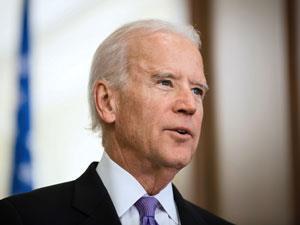Cancer, precision medicine and health research receive funding boost in bill derided by some as a giveaway for pharma
The US National Institutes of Health (NIH) will receive $4.8 billion (£3.8 billion) in new research funding over 10 years under new legislation that has overwhelmingly passed both chambers of Congress. The bipartisan 21st Century CURES Act also creates a research policy board charged with advising the government on how to reduce administrative burdens on government-backed scientists.
The Obama administration’s Cancer Moonshot initiative to cure cancer, launched in January, will receive $1.8 billion of the new funds. In addition, nearly $3 billion will be invested in the President’s BRAIN initiative to map the human brain and also the Precision Medicine Initiative to develop personalised medicine therapies.
Beyond providing extra money for research, the CURES Act also includes provisions to speed up the US Food and Drug Administration’s pharmaceutical and medical device approval process.
However, several Senate Democrats – including Elizabeth Warren and former presidential hopeful Bernie Sanders – opposed the bill, arguing that it would unduly benefit the pharmaceutical industry. A major criticism is that the measure would dilute safety requirements for new drugs and devices.
The US consumer rights group Public Citizen claimed that 1300 lobbyists, mostly from pharmaceutical companies, were involved in crafting the legislation. Michael Carome, who directs Public Citizen’s health research group, said his organisation and other opponents of the bill were able to improve it by, for example, eliminating provisions that created loopholes for the pharmaceutical industry to give educational gifts to physicians, and removing language that would have allowed medical device manufacturers to avoid FDA oversight when making changes to high-risk medical products. ‘The bill passed today does less harm than the original bill that passed the House last summer, but Congress should not have had to jeopardise patient safety to increase medical research funding,’ Carome warned on 7 December.
The president and chief executive of the Pharmaceutical Research and Manufacturers of America, Stephen Ubl, said the 21st Century Cures Act will enhance the competitive market for biopharmaceuticals and drive greater efficiency in drug development. ‘It also increases the FDA’s regulatory capabilities to foster the timely review and approval of new treatments for patients,’ he added.
Scott Whitaker, the president and chief executive of the Advanced Medical Technology Association, agreed. In a 7 December statement, he called the legislation ‘a win for patients and for medical innovation’. When fully implemented, Walker said it will help accelerate the discovery, development and delivery of medical advancements to ensure more timely access to new treatments and cures for patients.










No comments yet